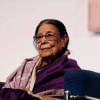Mobarak appeal comes next for SC hearing
The Supreme Court is now set to hear and settle the appeal of convicted war criminal Mobarak Hossain.
The defence and the state counsels, however, could not say specifically when the apex court would start hearing the appeal.
Earlier, the SC completed the proceedings of the appeal of war criminal Mir Quasem Ali and upheld the Jamaat-e-Islami leader's death penalty on March 8.
On November 24, 2014, the International Crimes Tribunal-1 sentenced Mobarak, a former Awami League leader from Brahmanbaria, to death for abducting and killing 33 people of Tanmandayl village in his district during the Liberation War.
The tribunal also sentenced Mobarak to life imprisonment for another war crime and acquitted him of three other charges.
On December 18, 2014, Mobarak filed an appeal through his lawyers with the apex court, challenging the ICT-1 verdict.
In an 82-page appeal, Mobarak sought acquittal of the two charges, in which he was found guilty and convicted. He also annexed documents of 780 pages along with the appeal.
The former AL leader also mentioned 77 grounds, for which, according to him, the court should consider acquitting him.
A defence lawyer, Tajul Islam, told The Daily Star on March 11 that neither the defence nor the state counsels submitted concise statements to the SC on the appeal.
A concise statement contains the points on which the counsels place arguments on an appeal before the SC.
The Appellate Division may include the appeal of Mobarak in its cause list any day and ask the counsels for submitting their concise statements to it for starting the hearing.
Attorney General Mahbubey Alam told this correspondent on March 11 that his office would take necessary steps after the appeal of Mobarak was placed on the cause list.
Apart from Mobarak, other appellants in war crimes cases are Jamaat Assistant Secretary General ATM Azharul Islam and Senior Nayebe Amir Maulana Abdus Subhan and former state minister Syed Mohammad Qaisar.
Two international crimes tribunals have convicted and sentenced them to death for committing crimes against humanity during the war in 1971.
Besides, the government filed an appeal with the SC, seeking death penalty for former Jatiya Party lawmaker Abdul Jabbar, who is on the run.
The ICT-1 on February 24 last year sentenced Jabbar to imprisonment until death in absentia for crimes against humanity.
The SC has so far disposed of the appeals of seven war criminals. Four of them have been executed. They are Jamaat leaders Abdul Quader Mollah, Muhammad Kamaruzzaman and Ali Ahsan Mohammad Mojaheed and BNP leader Salauddin Quader Chowdhury.
The SC on January 6 this year upheld the death penalty for Jamaat chief Motiur Rahman Nizami for his war crimes. The apex court has yet to release the full text of its judgement on Nizami.
Another war criminal and Jamaat leader Delawar Hossain Sayedee has been behind bars as the SC commuted his death sentence to jail until death.
The ICT-1 had earlier sentenced Sayedee to death for his crimes against humanity.

 For all latest news, follow The Daily Star's Google News channel.
For all latest news, follow The Daily Star's Google News channel. 








Comments